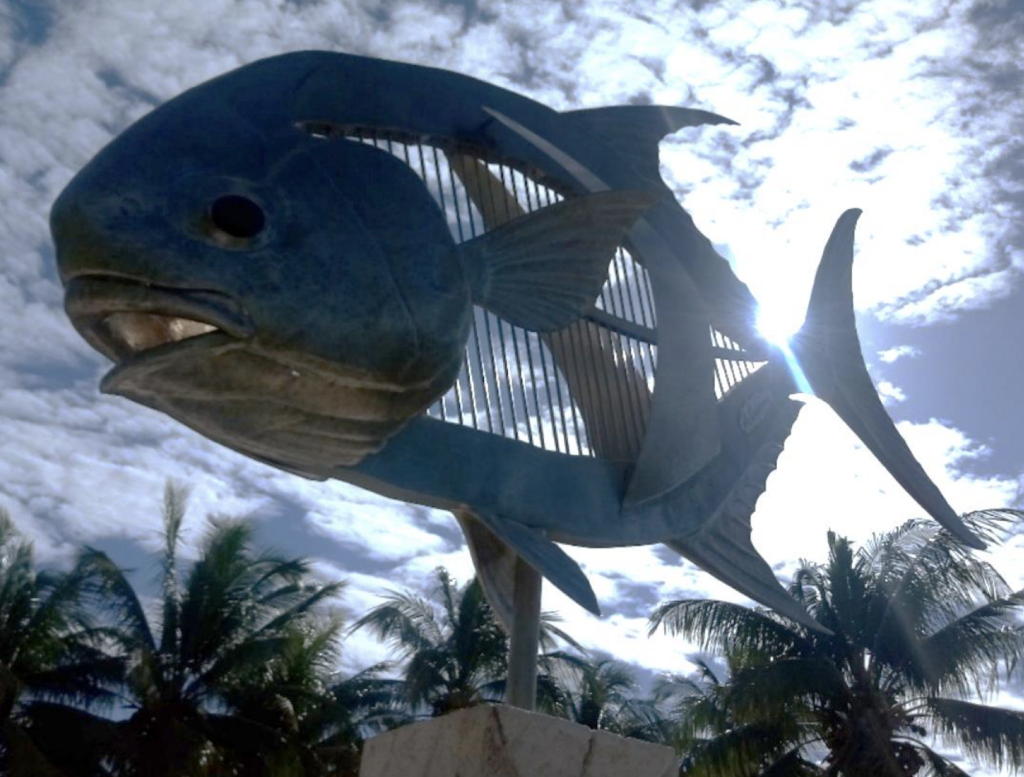A permit sculpture in Quintana Roo, Mexico. Photo: Dr. Addiel Perez
The economic value of the flats fishery has proven to be an effective conservation tool. Economic studies in Florida, The Bahamas, and Belize have provided leverage for improved conservation measures, such as habitat protections, catch-and-release-only regulations, and spawning season closures. Dr. Addiel Perez, BTT’s Belize-Mexico Progam Coordinator, and Dr. Leopoldo Palomares from Yucatán, Mexico, recently completed an economic impact study that will be similarly used to improve conservation of Mexico’s flats fishery.
Following the same protocol used in previous economic impact studies of flats fisheries, Palomares and Perez interviewed fishing guides and lodge managers to determine the economic impact of the flats fishery in the state of Quintana Roo, on the eastern side of the Yucatán Peninsula. Direct angler expenditures of nearly $20 million, plus the value-added effects of these expenditures, resulted in a total economic impact of $45.2 million (USD) in 2019, which supported approximately 1,674 jobs.
The long-term health of the flats fishery in this region, as well as the sustainability of the fishery for the region’s economic well-being, depends on improved habitat conservation. This includes better fisheries regulations, habitat and spawning site protections, and proper fish handling. BTT will continue to work with flats fishing communities and resource managers to achieve these goals.
Click HERE to read the full report.




